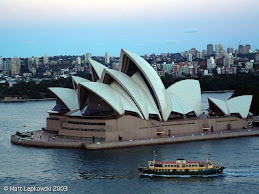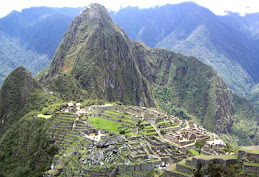Manmohan knew it all along
The rupee-rouble scam--Part-II
By Namit Verma
Despite opposition from the other ministries concerned, Commerce, Defence and External Affairs; the Indian Finance Ministry under Dr Manmohan Singh and with the redoubtable team of flamboyant officers like Montek Singh Ahluwalia, N.K. Singh, N.P. Singh and A.K. Singh allowed Boris Yeltsin to unilaterally abrogate the 1978 protocol without any legal and/or compensatory financial recourse.
Ever heard of SISTEMA, or of NORILSK? They will outbid all competition to buy your stock, your company and your mineral reserves. Whether it be coveted telecom licenses or scarce mineral resources, nobody can withstand their purchasing power. But then, they have an advantage, they buy the rupee at a discount. Technically, at a 90 to 95 per cent discount; reportedly, after paying off their political, bureaucratic and central banking friends, at a 40 to 45 per cent discount.
These companies are the progeny of Dr Manmohan Singh’s long career in the world of Indian finance. Few entrepreneurs could have sired such brilliant corporate children whose growth rate defied gravity. Fewer still could have nurtured such dreams in the tenuous world of governance and politics in a democracy. Yet, the vision and genius of Dr Manmohan Singh made these profit centre marvels possible, as he nurtured them in many capacities.
As Secretary, Ministry of Finance, Department of Economic Affairs, Government of India, he masterminded the Intergovernmental Protocol of 25 November 1978 with the Union of Soviet Socialist Republics. Through the 1978 protocol, he arranged for the administered fixed parity of the rupee and the rouble to be replaced by a floating parity linked to western currencies. This led to the withdrawal of the Soviet Bloc’s back-channel access to western economic systems through the shock absorber Indian economy.
Removal of the Indian buffer made the USSR vulnerable to the contradictions between its domestic and international trading sectors; thereby facilitating the West getting it’s foot in the door and bankrupting the Soviet treasury. Of course, the Soviet state with its enormous asset base couldn’t be bankrupted; yet, following this liquidity/monetary crisis, America friendly faces started emerging in key positions in the Union of Soviet Socialist Republics, setting up the dominoes for Mikhail Gorbachev to unleash, and Boris Yeltsin to collect upon. As Co-Chairman of the Indo-Soviet Joint Planning Group Meeting (1980-82), he authorised the Deferred Payments Protocol of 30 April 1981.
This smokescreen has proved to be more an instrument of administered value inflation/revision of an ostensibly floating rouble, than a deferred payment agreement: contradictions abound. As leader of the Indian delegation to the Indo-Soviet Monitoring Group Meeting (1982), like an adept rural moneylender, he ensured self-inflating clauses in the revised protocol to ensure that the loan repayment would remain incomplete despite being paid back several times.
As Minister of Finance, he authorised the Letters of Exchange dated 29 January 1993, to open unhindered access to India’s national treasury for Russian companies. By now, the political wheel had turned upside down in the erstwhile Soviet Union, and the US friendly Boris Yeltsin had taken over.
Despite opposition from the other ministries concerned, Commerce, Defence and External Affairs; the Indian Finance Ministry under Dr Manmohan Singh and with the redoubtable team of flamboyant officers like Montek Singh Ahluwalia, N.K. Singh, N.P. Singh and A.K. Singh allowed Boris Yeltsin to unilaterally abrogate the 1978 protocol without any legal and/or compensatory financial recourse. We shall discuss these actions of the Government of India in greater detail in forthcoming paragraphs.
As Prime Minister, Dr Singh is running his final lap in India, he is in a rush to sanction full liquidity and valuation rights accorded to these special rupees, despite the fact that while signing the 1993 protocol, Yeltsin had specifically promised that this would not be allowed. Yet, every agreement has been set aside and this has been effected.
Thus a company like Sistema is bidding for majority control of Shyam Telelink which in turn was allotted a Universal Telecommunication License for the whole country earlier this year. Now Sistema bought Shyam Telelink shares at Rs 55 each, or around 1.1 Soviet Rouble (Sixth Rouble: 1961-1997) under the 1993 protocol read with Public Notice No 12 (RE 2007)/2004-2009 of 27 June 2007, whereby the RBI fixed the Indian Rupee value of the Special Currency Basket linked to the Rouble at 56.8292 effective from 19 April 2007.
Again, conversion rate from Sixth Soviet Rouble to the Seventh Russian Rouble was fixed at 1000 Sixth Rouble to 1 Seventh Rouble at the time of new issue on 1 January 1998. Thus, the price of 1.1 Sixth Rouble per Shyam Telelink share = 0.0011 Seventh Rouble per Shyam Telelink share = 0.0011 x 0.044012 dollars per Shyam Telelink share = 0.0000484132 dollars per Shyam Telelink share = 0.0000484132 x 42.735 rupees = 0.002068938102 Rupees or 2.068938102 paisa per Shyam Telelink share! Calculating further, that Sistema bought these Rupee credits at a 90 per cent discount, or at 10 per cent of face value, the effective cost per Shyam Telelink share for Sistema works out at 0.0207 paise! Given that the effective discount was only 50 per cent, assuming 20 per cent kickback each to the Indian and Russian establishments, even so, the price per Shyam Telelink share to Sistema works out at 1.034469 paise or Re 0.01.
So, by channeling their money through the arbitrage funnel of the Indo-Russian Intergovernmental Agreement of 1993, the foreign company is grabbing shares for effectively 1 paisa each. All this, while indigenous bidders would have to pay 55 honest rupees for the same shares at the same time, i.e. five thousand five hundred times the price paid by the Russian company!
Such is the magnanimity of Dr Manmohan Singh in handing over Indian assets to foreign entities. In the wake of these facts, can there be any doubt about the love, adulation, prestige and loyalty he commands in the international arena. http://www.organiser.org/dynamic/modules.php?name=Content&pa=showpage&pid=248&page=4
The rupee-rouble scam--Part-I @
http://www.organiser.org/dynamic/modules.php?name=Content&pa=showpage&pid=247&page=3
skip to main |
skip to sidebar













Don't put the key to your
happiness
in someone else's pocket.
INTERFAITH

Informative Links
Bharat Raagini
Incredible : INDIA
Dil Hai Hindustani
Aana Hai Tou Aa
Jagte Raho
Behti Hai Ganga
Insaaf Ka Mandir
Los Angeles,USA

Sydney, AUSTRALIA

Himalayas, India

Swiss Alps

Eiffel Tower,Paris

Tower Bridge, London

Grand Place, Brussels

SUNRISE

Machu Picchu, PERU

Venice

Modern Art

Pencil sketch

Think about this;
Don't put the key to your
happiness
in someone else's pocket.